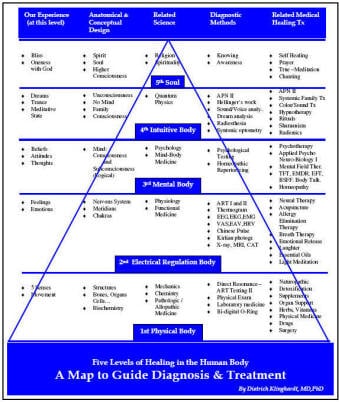Lowell Weiner DDS, FAGD
Integrative Health Blog
Tags: biological dentistry, allergies, root canal, cavitations
by Mark McClure DDS, FACG
Biological Dentistry is Whole person dentistry:
Whole - person dentistry, which is gaining understanding and support among the public and professionals, is the awareness of the intricate web-like relationships between dentistry and one’s general health and wellbeing. Its practitioners have advanced skills and knowledge in intervening to regain and maintain patient’s health. The whole - person dentist will embraces other descriptive terms like holistic, integrative medical and biological dentist. The whole - person dentist must wear multiple hats – first he/she is conventionally trained, incorporating the best developing dental technologies and aesthetics that modern dentistry offers but there is much more to a holistic dental approach.
Biological Natural Dentistry
Whole person, Biological Dentistry refers to routinely using biological (or natural) products and principles to help people be healthier more effectively and efficiently. The use of herbs, super-foods, nutrients, drainage remedies and homeopathics, and oxygen- ozone (as well as drugs and surgery when needed) in routine and specialty dental services defines the whole body approach that is employed. In summary, the principles of biological dentistry is treatments that are safe and effective, non-toxic with little or no side-effects, allowing the patient to heal themselves and ultimately reaching a state of biologic homeostasis - meaning health.
Tags: biological dentistry, integrative health, holistic approach, integrative medicine, dental health, holistic dentistry
People come to us at NIHA when they have concerns about their health of body or mind. Working with the natural laws of health is the goal of the integrative medicine practitioners at NIHA and we are proud to announce the formation of the Integrative Physical Health Initiative. The insights of our various practitioners are adding to the IPH menu of choices available for individual health care programs by recognizing that every physical concern is affected by the person’s conscious participation in improving their health.
Tags: craniosacral therapy, biological dentistry, integrative medicine, mind-body
Michelle Janbakhsh DDS
Dry mouth, or xerostomia, is a condition usually associated with reduced salivary gland flow. It affects at least one in 10 adults. In adults older than 65 the prevalence is about 25%, while in institutionalized elders it can be as high as 50%.
Many oral and systemic conditions can cause a change in the flow and composition of saliva. Prescription medications are implicated in 64% of dry mouth cases. The major drug groups are antihypertensives, antidepressants, analgesics, statins, antihistamines and anticancer meds but other factors may be involved.
Risk Assessment for Dry Mouth
If you answer yes to any of the following questions you could be at risk of abnormal salivary gland function.
1- Does the amount of saliva in your mouth seem too little?
2- Do you have any difficulty swallowing?
3- Does your mouth feel dry when eating a meal?
4- Do you sip liquids to aid in swallowing dry food?
Symptoms of Dry Mouth
Dry cracked lips and corners of the mouth, thick or ropey saliva, dry thin pale oral mucosa, loss of moist or burning feeling in the mouth, impaired taste, bad smell of the mouth, impaired taste, difficulty wearing dentures, dental hypersensitivity.
Non-oral symptoms: Sleep disturbance, dry nose and changes in sense of smell, dry burning eyes, blurred vision, heart burn, constipation, vaginal itching or dryness or fungal infection.
Complications of dry mouth include cavities on roots and teeth, reddened, fissured or lobulated tongue, opportunistic infections such as viral infection or overgrowth of candida. Also gingivitis, canker sore, cracked and bleeding tissue.
Tags: biological dentistry, holistic approach, holistic dentistry
Tags: cosmetic dentistry, biological dentistry, holistic dentistry
1. Biological dentistry is the integration of dentistry and medicine. NIHA biological dentists, along with a growing number of eminent clinicians, believe that the mouth is an integrated part of the entire body, and should be treated accordingly. Your oral health relates to your overall health and wellness.
2. Biological dentists are conventionally trained, but have additional study and training in the systemic impacts of dental health. The difference between biological dentistry and conventional dentistry is that our dentists aim to treat a patient's dental problems while evaluating the impact on the rest of the body. They believe that the mouth, and all its structures are connected to your whole body. All dental therapies should work to enhance the body's natural ability to heal and repair itself.
3. Biological dentistry considers other health factors
.png?width=305&height=132&name=NIHAlogoBLUE_3_transparent%20(2).png)





